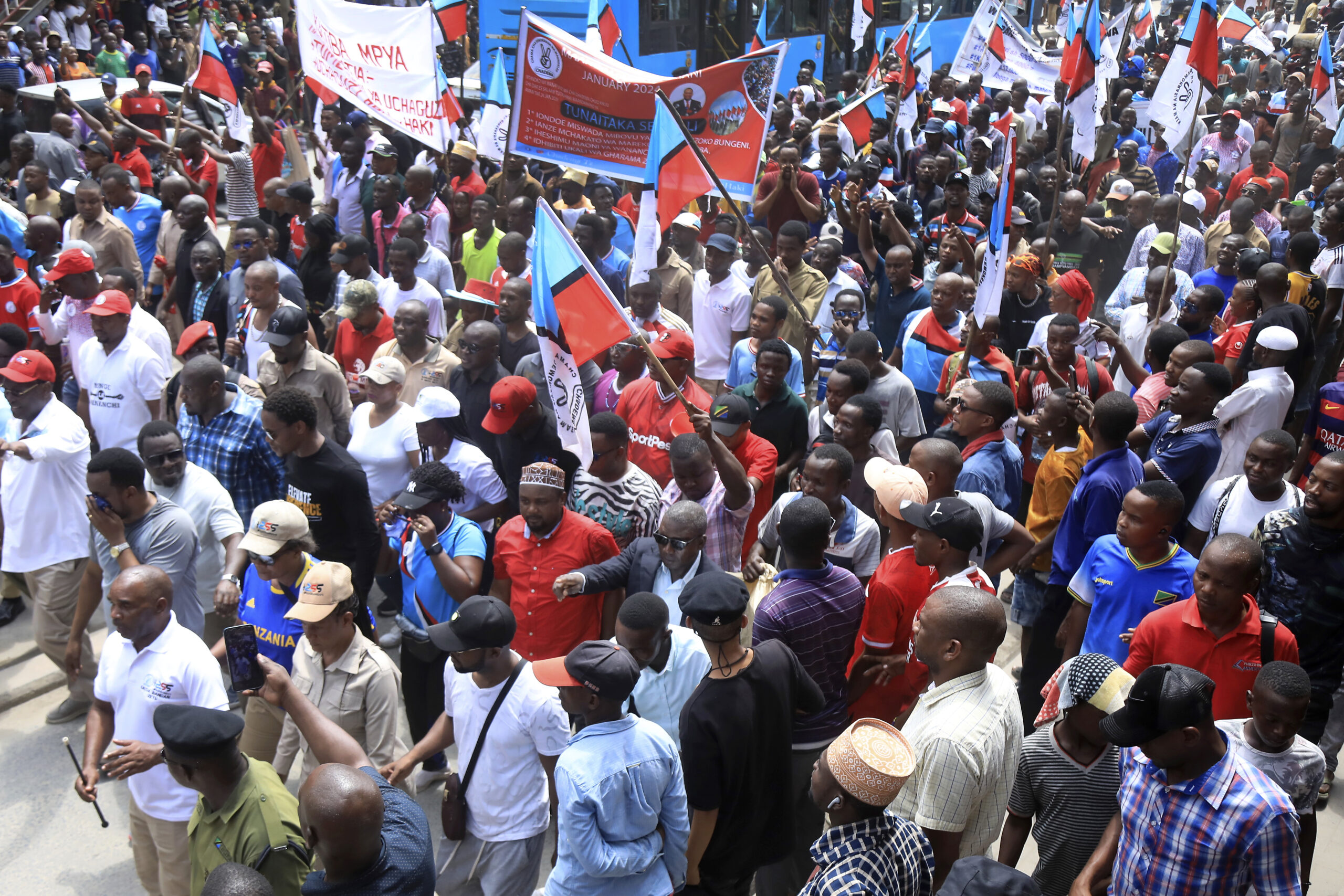
Tanzania’s November 27 civic votes set the stage for 2025
President Samia Suluhu Hassan’s administration will undergo its initial genuine political examination when Tanzanians vote on November 27.
This week, the official date was disclosed amid a dispute between security agencies and the primary opposition party, Chadema, regarding the right to convene. The authorities perceived this dispute as an attempt to provoke disorder in the nation.
After a heavy-handed police response to Chadema’s plan to hold a rally in Mbeya, south-west Tanzania, all hopes for a smooth conduct of the civic poll, which will set the groundwork for the general elections next year, were dealt a grievous injury.
On Monday, the party’s leaders and a portion of their supporters, which numbered over 500, were apprehended prior to the rally. Subsequently, they were released and returned to their residences.
The Ministry of Local Government and Regional Administration (Tamisemi) announced the election date following a lengthy delay with great fanfare in the capital, Dodoma, on Thursday. However, the incident cast a shadow over the announcement.
Police violently enforced a prohibition on the opposition rally, which was scheduled to commemorate the annual International Youth Day.
Party Chairperson Freeman Mbowe, Vice-Chairperson Tundu Lissu, Secretary-General John Mnyika, and central committee member Joseph Mbilinyi were among those apprehended during the search. They were subsequently returned to their respective regions under the supervision of a large police force, along with other detainees.
The rally was prohibited by the police and the Office of the Registrar of Political Parties due to their apprehension that it could incite anti-government protests akin to the Gen-Z youth movement in neighboring Kenya.
However, the Chadema leaders condemned the “unprecedented brutality” they had encountered at the hands of the police at their first press conference on Wednesday after returning to Dar es Salaam.
Lissu and Mnyika were unreserved in their account of the police officers’ use of batons, pepper spray, and tasers to physically assault them. They also recounted the severe injury sustained by their colleague, Mbilinyi, who was transported to a hospital in Dar es Salaam.
Mnyika described how Commander (CP) Awadh Haji, the head of the Operations and Training Unit of the police force, “snatched my spectacles off my face, broke them, and then stomped on them, before other police officers began beating us mercilessly.”
“We were subsequently placed in police trucks and transported for hundreds of kilometers while lying face down.” He also mentioned that Mbilinyi was in a particularly poor condition.
Mbowe declared that the police action was “completely unwarranted” and that it was a deliberate attempt to impede the opposition in anticipation of Tanzania’s forthcoming election season.
“Instead of accomplishing their intended objective of discouraging the youth from adopting the type of mutinous stances that have been observed in Kenya, Uganda, Nigeria, and other countries, these actions may actually motivate them.” And it would be futile to assign responsibility to the opposition in the event of such an occurrence,” the party leader stated.
He declared that Chadema would persist in its pursuit of political equality, despite the incident, and that “this country will not be safe for anyone” if such police violence were to be replicated in either of the two upcoming elections.
The party has also declared its intention to pursue legal action against CP Haji and Assistant Registrar Sisty Nyahoza, who signed the letter to Chadema that prohibited the Mbeya rally, in their individual capacities for organizing the week’s activities.
Mr. Nyahoza’s letter cited invitation videos posted on social media by the party’s youth leaders, which urged youths throughout the country to attend the rally “to demonstrate that they are as committed as their Kenyan counterparts in establishing a new destiny for the country and eliminating state control.”
Mbowe disregarded the assertion that such statements were equivalent to instigating social disorder as a “completely baseless assumption.”
The nationwide civic poll on November 27 will oversee the election of council members, village, street, and ward chairpersons.
It is anticipated that the 2025 presidential and parliamentary elections will serve as a litmus test, during which the governing CCM party will endeavor to preserve its legislative dominance and President Samia Suluhu Hassan will attempt to secure an uncontested electoral mandate for the first time.
By constitutional decree, she was promoted from vice-president following the death of her predecessor, John Magufuli, in 2021.
In spite of the establishment of an Independent National Electoral Commission (INEC) in response to amendments to the electoral law earlier this year, the Mbeya incident has exacerbated skepticism regarding the likelihood of a free and fair vote in November. Additionally, concerns have been raised regarding the government’s ongoing supervision of local elections.
On Thursday, Tamisemi Minister Mohamed Mchengerwa, whose portfolio is directly under the president’s office, launched the November election by announcing that ballot papers and other necessary documents were prepared for the event.
The formal campaigning of contesting political parties will commence no earlier than one week prior to the November 20 polls. Additionally, they have been directed to submit their campaign meeting schedules to the ministry’s approved election administrators at least one week in advance.
All Categories
Recent Posts
Tags
+13162306000
zoneyetu@yahoo.com



